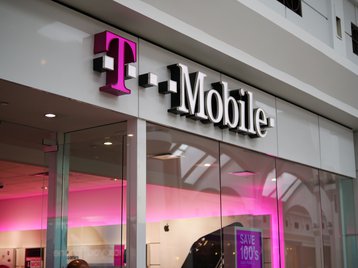And just like that, the UK only has three mobile operators to choose from, after Vodafone completed its £15bn ($20.37bn) merger with Three.
It feels like it was forever ago that the deal was first announced, way back in October 2022. It was one of the first big merger deals I covered during the early days of my DCD career.
VodafoneThree is born
We’re now halfway through 2025, and the deal has finally closed. (The marketing team at Vodafone and Three deserves great credit for the new name, VodafoneThree.)
As part of the mammoth merger, VodafoneThree has committed to investing £11bn ($14.9bn) in its 5G mobile network during the next decade, with £1.3bn ($1.8bn) to be invested in capex alone during the first year.
There have been plenty of other mobile mergers announced and completed during this time, but this one feels significant, given the fact that it creates the biggest telco in the UK, which in turn is one of Europe’s biggest markets.
Only three British telcos remain, which seems unthinkable now given the number that existed in the country as far back as the early 2000s.
It was less than 15 years ago that there were five mobile operators in the UK: Vodafone, O2, Three, Orange, and T-Mobile. The latter pair ultimately merged to create Everything Everywhere, better known now as EE. A bit like the UK pop band Take That, five has now become three.
Less is more?
The merger appears to be a sign of the times. The fewer mobile operators around the better, or at least that seems to be the mindset for a lot of telcos across Europe.
For Vodafone, the merger marks the conclusion of a period of consolidation in Europe that has been ongoing since CEO Margherita Della Valle took the reins a couple of years ago. During that time, the carrier has sold its Spanish and Italian units, insisting that its key focus will be on the UK and Germany.
Vodafone isn’t the only telco pushing to consolidate; in fact, it’s something that is constantly mentioned by some of Europe’s other big mobile operators.
There have been murmurings of consolidation in the French market recently, where there are four mobile operators. Indeed, most major European markets only have either three or four networks.
And yet this still feels like too many. Is more market consolidation necessary? Or is there a need for a complete overhaul of how operators run their operations in Europe?
Is there a need for cross-border M&A?
What if the continent of Europe operated as one big market?
Something that has been suggested in some quarters is the notion of cross-market consolidation through more M&A deals. Those in favor of this will point to the US as an example.
The population of the US is around 340 million, and yet the market is only served by three major carriers: AT&T, T-Mobile, and Verizon. There was a fourth major player, Sprint, until 2020, but that company was swallowed up by T-Mobile.
Europe’s population is more than double that, at around 744 million. But the market in the European Union, for example, is served by 34 operators, more than ten times as many different companies as in the US. Even China, which has a population of 1.4 billion people, only has four mobile carriers.
Regularly at telecoms events, we’re told that Europe has fallen behind the US and China. Maybe some of those calling for change have a point when you look at the volume of carriers there are in Europe. It’s pretty fragmented.
Perhaps it is time for regulators to be more open to consolidation in the market, not just in specific countries, but across borders. What such a model would look like is open for interpretation, but it could include the European Union and adjacent non-EU markets such as the UK.
Last year, the former European Central Bank president and ex-Prime Minister of Italy, Mario Draghi, said that mergers should be viewed more favorably by the EU than is currently the case.
Draghi said competition should be “more forward-looking rather than prudential,” noting that regulators need to soften their stance when deals are proposed.
His comments were echoed by some of Europe’s top mobile carriers during Mobile World Congress (MWC) in early March. The telcos claim too much bureaucracy is hindering Europe’s progress.
Connectivity and competition
It’s fair to say Draghi’s comments didn’t go down well with the EU, which hit back, noting that consumers in the US pay a lot more for their mobile data than their European counterparts.
A 2022 study conducted by the European Commission revealed that European consumers pay €16.15 ($18.44) for 20GB of mobile data compared to €37.87 ($43.25) paid in the US.
That’s the double-edged sword of it all. Telcos in Europe have groaned about the cost of investing in their 5G networks, which to some extent has slowed the rollout of these networks.
Other factors, such as the Covid-19 pandemic and the rip-and-replace of Chinese network equipment, haven’t helped.
These carriers may have a point. If there are fewer operators to compete with, there will be more spectrum for them to utilize and more revenue built up through larger customer bases.
But what’s to say that these mobile carriers won’t hike their prices at the expense of the consumers, who would be left with fewer options to choose from? Then Europe’s data costs could rise rapidly, in line with markets like the US.
All eyes on VodafoneThree
Cross-border consolidation could be a solution in the long run, but the competitiveness of the market is something that Europe should be careful about losing entirely.
Ultimately, it’s down to what these M&As produce for consumers and their respective markets.
All eyes will now be on VodafoneThree. Both said that their merger would pave the way for an enhanced 5G service offering in the UK. Time will tell if the union lives up to its promise.
Read the orginal article: https://www.datacenterdynamics.com/en/opinions/vodafonethree-merger-could-whet-the-appetite-for-more-consolidation-in-europe/










